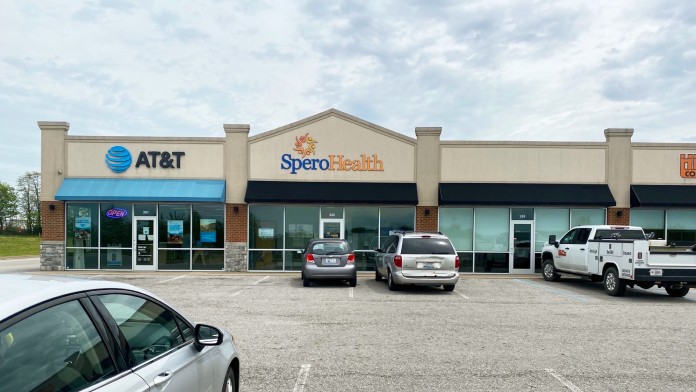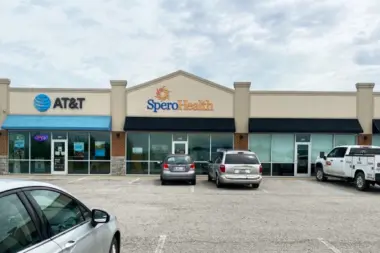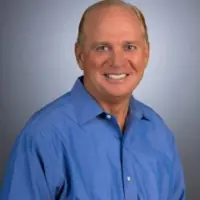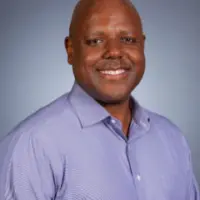About Spero Health – Lebanon
Spero Health – Lebanon is part of a healthcare service organization that offers integrated treatment. They specialize in alcohol and drug addiction treatment services with a mission to save lives while restoring relationships and instilling hope. They have multiple locations, including the facility in Lebanon, Kentucky. The Lebanon clinic offers physician visits, recovery support, and individual and group counseling. They accept most commercial insurance and Medicaid.
The Lebanon facility is only a mile from the charming downtown district. The downtown business district is featured on the National Register of Historic Places, and the area is known for its historic buildings, galleries, boutiques and local restaurants.
Treatment is available for adults 18 and up. Additionally, they offer treatment to pregnant and postpartum women, seniors and those with co-occurring mental health and substance use disorders (SUD).
Medication Treatment for Opioid Use
The clinic has worked diligently to help clients who are caught up in the opioid epidemic. They offer medication assisted treatment (MAT) in conjunction with counseling to help clients recover. MAT includes Suboxone, Subutex and Vivitrol. They do not use methadone, though they can offer you a referral to an inpatient facility or clinic that offers it.
Combining Addiction Care and Physician Services
Their integrated care model includes primary care physician services. This is a community based approach to treatment that helps clients receive all the care they need under one roof. This model ensures that clients can continue working, going to school or helping with their families while receiving treatment.
Clients seem to like this model of care. One client mentioned that, “The staff is super caring and actually take care of any need they can…very very loving staff.”
Latest Reviews
Rehab Score
Gallery


Other Forms of Payment
Medicaid is a state based program that helps lower-income individuals and families pay for healthcare. Medicaid covers addiction treatment so those enrolled can use their coverage to pay for rehab. When a program accepts Medicaid the client often pays very little or nothing out of their own pocket.
Private insurance refers to any kind of healthcare coverage that isn't from the state or federal government. This includes individual and family plans offered by an employer or purchased from the Insurance Marketplace. Every plan will have different requirements and out of pocket costs so be sure to get the full details before you start treatment.
Addiction Treatments
Levels of Care
Outpatient Programs (OP) are for those seeking mental rehab or drug rehab, but who also stay at home every night. The main difference between outpatient treatment (OP) and intensive outpatient treatment (IOP) lies in the amount of hours the patient spends at the facility. Most of the time an outpatient program is designed for someone who has completed an inpatient stay and is looking to continue their growth in recovery. Outpatient is not meant to be the starting point, it is commonly referred to as aftercare.
Drug and alcohol addiction often takes a heavy toll on one's body. Over time, a physical dependence can develop, meaning the body physiologically needs the substance to function. Detox is the process of removing drugs and/or alcohol from the body, a process that can be lethal if mismanaged. Medical detox is done by licensed medical professionals who monitor vital signs and keep you safe, healthy, and as comfortable as possible as you go through detox and withdrawal. The length of stay at the detoxification program is determined according to the specific needs of the patient.
Completing a drug or alcohol rehab program shouldn't spell the end of substance abuse treatment. Aftercare involves making a sustainable plan for recovery, including ongoing support. This can include sober living arrangements like halfway houses, career counseling, and setting a patient up with community programs like Alcoholics Anonymous (AA) or Narcotics Anonymous (NA).
Treatments
Opioid rehabs specialize in supporting those recovering from opioid addiction. They treat those suffering from addiction to illegal opioids like heroin, as well as prescription drugs like oxycodone. These centers typically combine both physical as well as mental and emotional support to help stop addiction. Physical support often includes medical detox and subsequent medical support (including medication), and mental support includes in-depth therapy to address the underlying causes of addiction.
Substance rehabs focus on helping individuals recover from substance abuse, including alcohol and drug addiction (both illegal and prescription drugs). They often include the opportunity to engage in both individual as well as group therapy.
Programs
Adult rehab programs include therapies tailored to each client's specific needs, goals, and recovery progress. They are tailored to the specific challenges adult clients may face, including family and work pressures and commitments. From inpatient and residential treatment to various levels of outpatient services, there are many options available. Some facilities also help adults work through co-occurring conditions, like anxiety, that can accompany addiction.
Clinical Services
Research clearly demonstrates that recovery is far more successful and sustainable when loved ones like family members participate in rehab and substance abuse treatment. Genetic factors may be at play when it comes to drug and alcohol addiction, as well as mental health issues. Family dynamics often play a critical role in addiction triggers, and if properly educated, family members can be a strong source of support when it comes to rehabilitation.
Group therapy is any therapeutic work that happens in a group (not one-on-one). There are a number of different group therapy modalities, including support groups, experiential therapy, psycho-education, and more. Group therapy involves treatment as well as processing interaction between group members.
In individual therapy, a patient meets one-on-one with a trained psychologist or counselor. Therapy is a pivotal part of effective substance abuse treatment, as it often covers root causes of addiction, including challenges faced by the patient in their social, family, and work/school life.
Amenities
-
Private Setting
Staff & Accreditations
Staff

Steve Priest
President & CEO

Rick Adams
CFO

Dena Levine
Chief People Officer

Edward Littlejohn
COO

Justin Page
Chief Legal Officer
Accreditations

The Commission on Accreditation of Rehabilitation Facilities (CARF) is a non-profit organization that specifically accredits rehab organizations. Founded in 1966, CARF's, mission is to help service providers like rehab facilities maintain high standards of care.
CARF Accreditation: Yes
Contact Information
305 Koehler Drive
Lebanon, KY 40033